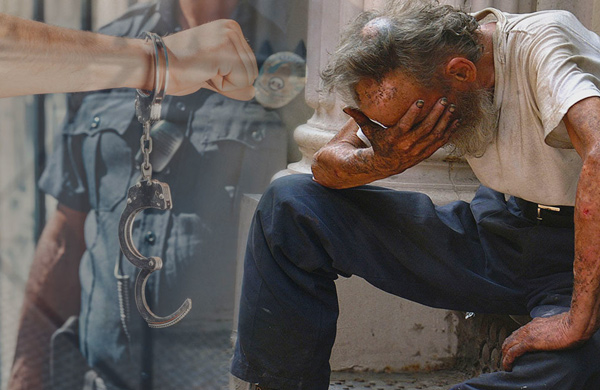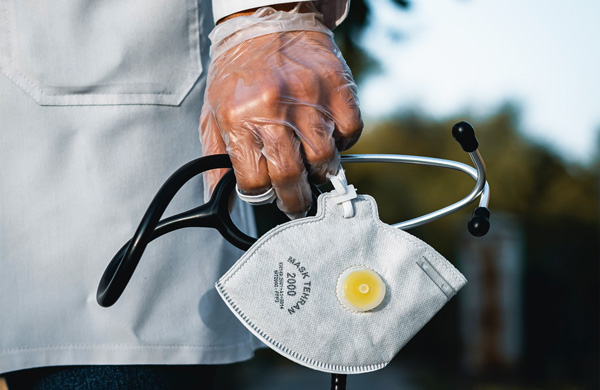

Untreated mental illness
On Nov. 29, New York City Mayor Eric Adams announced a plan aimed at people with severe mental illness (SMI). Mayor Adams said New Yorkers had a “moral obligation” to act when they saw people with SMI living on the streets in the throes of their illness. This directive allows New York Police Department (NYPD) officers, first responders, and others to pursue involuntary hospitalization for a person “who appears to be mentally ill and displays an inability to meet basic living needs even when no recent dangerous act has been observed.”
The previous standard for commitment was “danger to self or others.” Providers like Dr. Katherine Koh, a psychiatrist at Boston Health Care for the Homeless, asserts the focus should be on expanding community-based mental health services and access to permanent supportive housing
This proposal raises some safety and civil rights concerns. People with untreated mental illness are 16 times more likely to be killed during a police encounter than others, hence the NYPD might not be the best point of contact to engage people in crisis. Nearly two thirds of the NYPD have not undergone crisis intervention training on how to properly handle mental health calls, yet this new policy asks police officers to make decisions about the health and safety of vulnerable individuals.
The Bazelon Law Center, specializing in mental health law, released a statement signed by nearly 300 organizations (to include NHCHC) to press for a broader range of more effective and humane approaches. Many are concerned that this policy leaves out an essential piece of recovery: supportive housing. To learn more about this issue from a provider’s perspective, Mobilizer staff sat down with Van Yu, a psychiatrist in New York City who works with people experiencing homelessness, and is a member of the NHCHC Board of Directors.
NHCHC’s Corinne Lovett: What are the outcomes for patients who experience involuntary commitment?
Van Yu: There is a small subset of people who are street homeless in New York City, I would guess maybe 100-200, for whom regular treatment doesn’t work for and who might need involuntary commitment to stay safe. That being said, there are plenty of people with SMI who could benefit from inpatient hospitalization even when they don’t want services. The key to helping these patients in the long run, however, is supportive housing. Around 90% of my patients could get better with access to supportive housing. People with SMI can be successful if they can stay connected to care in the community upon discharge.
Corinne Lovett: Are you able to maintain contact with patients who have been involuntarily committed or maintain trusting relationships?
Van Yu: An effective therapeutic relationship requires trust. We have a saying here that the relationship is the treatment. Patients are the ones doing the hard work of taking their medication and making behavioral changes. I can give recommendations and prescribe medications but it’s the doctor-patient relationship that is the most effective treatment I can provide.
While involuntary commitment can sever these relationships, that is not always true. I had a patient who was having a manic episode in the emergency room. I hadn’t seen him in over a year so when the ER called to consult me, I told them that. The patient got admitted involuntarily and called me from his unit really angry. He blamed me even though I had nothing do to with it. I didn’t see him for another six months after that but then he popped back into the office. We re-established our relationship and we never ended up talking about how he was hospitalized.
Corinne Lovett: Do you think it will be harder to find your patients or keep them connected to care under the mayor’s new policy?
Van Yu: I think it might because it already is. When NYPD officers or other first responders choose to commit someone, they often don’t tell the health care or homeless services providers because they often don’t know who to tell. Then the hospital doesn’t know who to reach out to for discharge and we can lose the connection to that patient.
Corinne Lovett: Do you think the mayor’s new initiative will support people experiencing homelessness with mental health issues? What is your position on this topic?
Van Yu: I think there is more to it than that. I believe the involuntary commitment law as it was originally written was meant to include people who could not care for themselves. I agree with the mayor’s sentiment that we have a moral responsibility to people with SMI but taking people to the hospital is only part of what would help.
Hospitals face monetary and capacity limitations. There may not be enough hospital beds to treat all the patients that might qualify under this directive. Then you need sufficient, effective places to go when they are discharged. It’s our goal to have people living in the community. Permanent supportive housing is a proven solution for many such people. People engage in treatment after they are housed and have a measure of stability.
Corinne Lovett: Do you have any stories about involuntary commitment that speak to this issue?
Van Yu: I had a patient who was very mentally ill. She had breast cancer and would not acknowledge or admit it. She refused all treatment. I was unsure if she lacked capacity to make that decision, so I did not involuntarily commit her and force her to get care. I ended up slowly watching her die from that cancer. She would have had to have chemo or surgery which are impossible to involuntarily provide. I let her make her own decisions. It’s been 20 years and I still think about her and whether I made the right choices.
Corinne Lovett: What do you admire about your patients?
Van Yu: So much! I can empathize with their struggle, but I can’t understand their journey. It is incredibly difficult to live with symptoms of mental illness. I don’t know if I could do it. It is inspiring to watch people carry on and stand up for themselves. They are brave people.
Corinne Lovett: If you could make any change to society, how would you better the lives of people with SMI?
Van Yu: I’ve been thinking about whether instead of coerced treatment the system could design some kind of humane, compassionate coerced housing. If someone is experiencing homelessness, we could show up and offer them three choices of a place to live, let them pick one, and hand them their keys. But they have to pick one. No more living outside. Once someone is housed, then they can fully engage in treatment voluntarily, or not. It would end homelessness by giving people housing.
Van Yu’s perspective is his own. His concern for his patients and their welfare is obvious. Drawing conclusions from this interview, it is clear that for the mayor’s policy to be effective there needs to be a systems-level change that involves supportive housing in the community. People with SMI deserve help, health care, and housing to improve their lives.
If you have questions, post your comments below or contact us on the Policy Team.
Let us know what you think.


